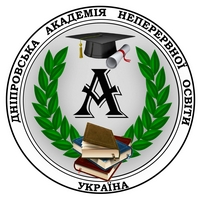GLOBAL EXPERIENCE OF DEVELOPMENT OF DISTANCE FORMS OF EDUCATION
Abstract
The article reveals the main content of the distance form of obtaining education. It was found that it involves access to the Internet, the availability of technical means, such as a computer, tablet or smartphone for the
participants of the educational process. In addition, teachers must possess distance learning technologies, which represent a complex of educational technologies, including psychological-pedagogical and information-communication technologies. After all, the issues of the development of distance education remain relevant even in such a difficult period that Ukraine is currently experiencing. It was found that distance learning in the conditions of martial law should be aimed at students who are forced to temporarily or permanently live outside their place of residence, or even outside the state. It was determined that the idea of introducing distance learning is not new. The nearly two-century history of distance education can be divided into four periods, from mail-order learning in the late nineteenth century to today’s high-throughput computer-based learning. An analysis of scientific sources has been carried out, which shows that the conceptual foundations for the development of distance forms of education have been sufficiently developed in Ukraine. Thus, the works of domestic scientists highlight the problems of implementing the educational process in unfavorable conditions and conclude that the strategy for the distance vector in education should be supported at the state level. In their research, foreign scientists note that distance learning must be carefully planned, prepared and organized in advance. The peculiarities of the introduction of distance learning in the countries of the world in the conditions of the pandemic are considered. It was determined that higher education institutions around the world have a common goal - to provide a high level of education in extraordinary circumstances, while maintaining the highest academic standards. Distance learning in all considered institutions is widely used during unusual circumstances, develops the arsenal of technical means and the infrastructure of learning management systems, expands technical capabilities and becomes an integral part of modern education. It was concluded that on the basis of the world experience in the development of distance forms of education, it is possible to establish directions for the further development of the latest pedagogical technologies, which will remain useful even after the end of hostilities.
References
2. Kontseptsiia rozvytku dystantsiinoi osvity v Ukraini [Концепція розвитку дистанційної освіти в Україні]. Postanova MON Ukrainy vid 20 hrudnia 2000 r. URL: http://uiite.kpi.ua/2019/06/03/1598/ (accessed: 28.04.2022) [in Ukranian].
3. Kuharenko V. M., Bondarenko V. V. (2020). Ekstrene dystantsiine navchannia v Ukraini: monohrafiia [Emergency distance learning in Ukraine: monograph]. Kharkiv: Vyd. KP «Miska drukarnia». 409 s. URL: https://duan.edu.ua/ images/News/UA/Departments/Management/2020/monograph_ekstr_dyst_navch.pdf (accessed: 28.04.2022) [in Ukranian].
4. Oliinyk V. V. (2013). Vidkryta pisliadyplomna pedahohichna osvita i dystantsiine navchannia v zapytanniakh i vidpovidiakh [Open postgraduate pedagogical education and distance learning in questions and answers]: nauk.-metod. posib. NAPN Ukrainy, Un-t menedzh. osvity. Kyiv. «A.S.K». 312 s. [in Ukranian].
5. Pro vyshchu osvitu [On Higher Education]: Zakon Ukrainy vid 28 veresnia 2017 roku № 1556-18. URL: http://zakon4.rada.gov.ua/laws/show/1556-18/print1389899592029395 (accessed: 28.04.2022) [in Ukranian].
6. Pro zatverdzhennia polozhennia pro dystantsiine navchannia [On approval of regulations on distance learning]. Nakaz Ministerstva osvity i nauky Ukrainy vid 25.04.2013 № 466. URL: http://zakon4.rada.gov.ua/laws/show/z0703-13/print1389899592029395 (accessed: 28.04.2022) [in Ukranian].
7. Pro zatverdzhennia Poriadku zabezpechennia dostupu zakladiv vyshchoi osvity i naukovykh ustanov do elektronnykh naukovykh baz danykh [On the approval of the Procedure for ensuring access of higher education institutions and scientific institutions to electronic scientific databases]. nakaz Ministerstva osvity i nauky Ukrainy vid 27.02 2019 № 269 Ofitsiinyi visnyk Ukrainy. 2019. № 39. S. 238–241. URL: https://zakon.rada.gov.ua/laws/show/z0463-19#Text (accessed: 28.04.2022) [in Ukranian].
8. Svitovyi dosvid orhanizatsii ta rozvytku universytetskoi systemy dystantsiinoho navchannia [World experience of the organization and development of the university distance learning system]. Instytut vyshchoi osvity KNEU imeni Vadyma Hetmana. Kyiv, 2013. URL: https://kneu.edu.ua/userfiles/education2_0/13-4713_verstka(1).pdf. (accessed: 28.04.2022) [in Ukranian].
9. Yastremska S. (2016). Istorychni vikhy stanovlennia dystantsiinoho navchannia [Historical milestones in the development of distance learning]. Pedahohika i psykholohiia prof. osvity. № 3. 239–247. URL: http://nbuv.gov.ua/UJRN/Pippo_2016_3_26. (accessed: 28.04.2022) [in Ukranian].
10. Changing Course: Ten Years of Tracking Online Education in the United States. Babson Survey Research Group. Mode of access: URL: http://www.onlinelearningsurvey.com/reports/changingcourse.pdf (accessed: 28.04.2022) [in Ukranian].
11. Holmberg B. The sphere of distance-education theory revisited. URL: https://files.eric.ed.gov/fulltext/ED386578.pdf (accessed: 28.04.2022) [in Ukranian].
12. Peters, O. (1993). Understanding distance education. URL: https://distance-educator.com/introduction-to-distance-educationtheorists-and-theories-otto-peters/ (accessed: 28.04.2022) [in Ukranian].

 ISSN
ISSN  ISSN
ISSN 

